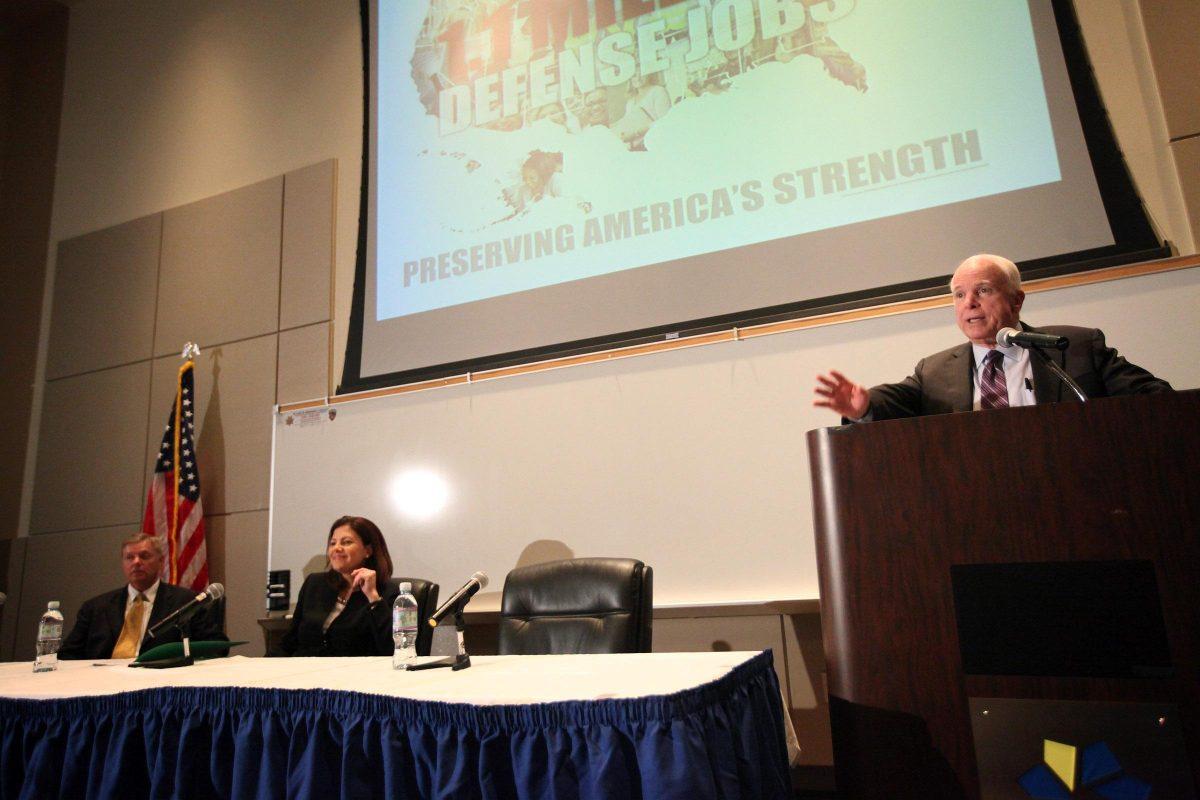Earlier this month, nearly 13 million Americans were unemployed – that is, actively seeking work but unable to find any, according to the Bureau of Labor Statistics. In addition, 8.2 million Americans were involuntarily working part-time because their hours had been cut back or because they were unable to find a full-time job. It’s undeniable that the unemployment statistics referred to above are the main reasons why our recovery from the “Great Recession” has been so prolonged and why our economy remains in a fragile state. And it looks like things are about to take a turn for the worse. Under the Budget Control Act, most federal programs face an across-the-board cut in January 2013 if Congress does not enact a plan before then to reduce the national debt by $1.2 trillion. Given this fact, one might expect President Obama and members of Congress to be doing everything in their power to pass legislation that would avoid the infamous budget sequester – approximately $109 billion in spending cuts set to take effect in January of next year would have a dramatically negative impact on employment and our economy in general. Unfortunately, this is not the case. The sequester was initially intended to be an incentive for the deficit reduction super-committee created in August of last year to reach a collective, bipartisan deal to reduce the deficit over the next decade. It was never actually meant to take effect. The sequester was designed to be such an unpalatable option that both Democrats and Republicans would be forced into a bipartisan agreement that accumulated $1.5 trillion in savings over the next decade. In typical fashion, however, the committee failed to reach an agreement. The first year’s sequester is scheduled to start in January with a $109 billion cut evenly divided between defense spending and non-defense spending. Essentially, our elected leaders have chosen to follow in the path of Europe and pursue the very same failed policies of government austerity that produced higher unemployment and did nothing to repair the fiscal imbalances it intended to fix. The Bipartisan Policy Center estimates in a recent report that sequestration would result in defense and non-defense-related job losses for more than one million American workers in 2013 and 2014. And combined with the January expiration of the Bush-era tax cuts, the first year of automatic spending reductions could send the U.S. right back into recession beginning in 2013, according to the nonpartisan Congressional Budget Office. With the threat of sequestration looming, Defense Secretary Leon Panetta warned a Senate Appropriations subcommittee earlier this summer that allowing the automatic defense cuts to take place will have far-reaching effects beyond a constrained military. “That kind of sequestration cut across the board will have a serious impact, not only on our men and women in uniform, but our personnel and the contractors that serve the Defense establishment,” Panetta told the Senate subcommittee. Findings from the House Armed Services Committee outlined how the sequester would affect the military in concrete terms: We would have the smallest Air Force in our history, the smallest Navy since 1915, the smallest ground force since before World War II and the smallest civilian workforce in the Defense Department’s history. Put simply, sequestration amounts to taking a meat cleaver to defense spending resulting in less training for U.S. troops in Afghanistan, significantly less funding for equipment and machinery, substantial hiring freezes and even the potential for denial of medical services to veterans. But sequestration won’t apply only to defense. It would have a calamitous impact on nearly all federal social programs that promote and protect the middle class in this country – everything from education to job training, medical research, child care, worker safety, food safety, national parks and border security. Take what Education Department Secretary Arne Duncan had to say about the sequester’s effect on education: “The sequestration will put at risk all that we’ve accomplished in education and weaken programs that help children, serve families, send young people and adults to college and make the middle-class American dream possible.” Slashing spending while our economy still recovers is a tremendously destructive policy that would further hamper economic growth and weaken our already struggling job market. President Obama and Congress must embrace a spirit of compromise in finding a better, fairer solution to the sequester before it’s too late. Jay Meyers is a 19-year-old economics sophomore from Shreveport.
____ Contact Jay Meyers at jmeyers@lsureveille.com; Twitter: @TDR_jmeyers
Share the Wealth: Budget sequester will disastrously affect employment
August 26, 2012





